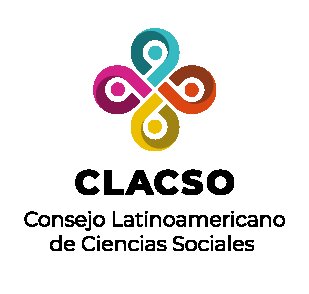Autores/as
Resumen
Objetivo. El presente artículo tiene por objetivo realizar una revisión acerca de los fundamentos referidos a aspectos claves de la política digital y sus mecanismos de gobernanza. Metodología. Se ha optado por emplear la metodología hermenéutica a fin de abordar cualitativamente la temática con base en el análisis bibliográfico. Resultados. Se describen los mecanismos y procesos inherentes a la gobernanza digital a niveles micro y macro y su influencia en el orbe, así como el desarrollo de las políticas digitales aplicadas al campo de la educación. Conclusión. Se discuten las oportunidades y dificultades del desarrollo de los sistemas de gobernanza multinivel con base en la aplicación de infraestructuras digitales y la consolidación de ecosistemas tecnológicos urbanos.
Citas
Akcil, U., Altinay, Z. & Altinay, F. (2016). Assessing the Effects of Managers in the Digital Age on the Management Process of Digital Citizenship Roles. The Anthropologist, 23(1-2), 209-217. doi: 10.1080/09720073.2016.11891943.
Alper, M. & Goggin, G. (2017). Digital technology and rights in the lives of children with disabilities. New Media and Society, 19(5), 726-740. doi: 10.1177/1461444816686323.
Bannister, F. (2017). In Defence of Bureaucracy: Governance and Public Values in a Digital Age. Beyond Bureaucracy, 27-47. Doi: 10.1007/978-3-319-54142-6_3.
Barassi, V. (2019). Datafied Citizens in the Age of Coerced Digital Participation. Sociological Research Online. Doi: 10.1177/1360780419857734.
Barns, S. (2016). Mine your data: open data, digital strategies and entrepreneurial governance by code. Urban Geography, 37(4), 554-571. doi: 10.1080/02723638.2016.1139876.
Barns, S., Cosgrave, E., Acuto, M. & Mcneill, D. (2016). Digital Infrastructures and Urban Governance. Urban Policy and Research, 35(1), 20-31. doi:10.1080/08111146.2016.1235032.
Barreiro, B. (2018). How Can China Influence the Transatlantic Governance of Cultural Products in the Digital Age? The Journal of World Investment & Trade, 19(3), 444-474. doi: 10.1163/22119000-12340096.
Bejou, D. & Bejou, A. (2016). Shared Governance: The Key to Higher Education Equilibrium. Journal of Relationship Marketing, 15(1-2), 54-61. doi: 10.1080/15332667.2015.1091630.
Bellanova, R. (2016). Digital, politics, and algorithms. European Journal of Social Theory, 20(3),
329-347. doi: 10.1177/1368431016679167.
Bianchi, I. S., & Sousa, R. D. (2016). IT Governance Mechanisms in Higher Education. Procedia Computer Science, 100, 941-946. doi: 10.1016/j.procs.2016.09.253.
Botchway, E., Boateng, E. & Kwofie, T. (2016). Benefits of e-governance implementation in physical infrastructure development at the local government level. Electronic Government, an International Journal, 12(4), 395-405. doi: 10.1504/eg.2016.080441.
Choi, M. (2016). A Concept Analysis of Digital Citizenship for Democratic Citizenship Education in the Internet Age. Theory & Research in Social Education, 44(4), 565-607. doi:10.1080/00933104.2016.1210549.
Clarke, A., Lindquist, E. & Roy, J. (2017). Understanding governance in the digital era: An agenda for public administration research in Canada. Canadian Public Administration, 60(4), 457-475. doi: /10.1111/capa.12246.
Constantinides, P., Henfridsson, O. & Parker, G. (2018). Introduction-Platforms and Infrastructures in the Digital Age. Information Systems Research, 29(2), 381-400. doi:10.1287/isre.2018.0794.
Cushing, A. & Shankar, K. (2018). Digital curation on a small Island: a study of professional education and training needs in Ireland. Archives and Records, 40(2), 1-18. Doi:10.1080/23257962.2018.1425135.
da Silva, C., Ribeiro, Q., Soares, M. & do Nascimento, R. (2019). ICT governance: A view of adoption of best practices in enterprises of sergipe state. ACM International Conference Proceeding Series. Doi: 10.1145/3330204.3330268.
Decuypere, M. (2016). Diagrams of Europeanization: European education governance in the digital age. Journal of Education Policy, 31(6), 851-872. doi: 10.1080/02680939.2016.1212099.
De Gier, J. (2018). IT Governance of Dutch Municipalities and Digital Information Management. New Review of Information Networking, 23(1-2), 36-46. doi:10.1080/13614576.2018.1537798.
Echalar, A. e Peixoto, J. (2017). Programa Um Computador por Aluno: o acesso às tecnologias digitais como estratégia para a redução das desigualdades sociais. Ensaio: Avaliação e Políticas Públicas em Educação, 25(95), 393-413. doi: 10.1590/s0104-40362017002501155.
Emejulu, A. & McGregor, C. (2016). Towards a radical digital citizenship in digital education. Critical Studies in Education, 60(1), 1-17. doi: 10.1080/17508487.2016.1234494.
Evans, A. & Gomes, R. (2017). The role of digital literacy in citizens’ adoption of digital public services: The Portuguese case. Proceedings of the European Conference on e-Government, ECEG,71-78.
Felix, R., Rauschnabel, P. & Hinsch, C. (2017). Elements of strategic social media marketing: A holistic framework. Journal of Business Research, 70, 118-126. doi: 10.1016/j.jbusres.2016.05.001.
Fernandez, S. (2019). Making space in higher education: disability, digital technology, and the inclusive prospect of digital collaborative making. International Journal of Inclusive Education, 1-16. doi: 10.1080/13603116.2019.1610806
Fischer, R. & Malan, B. (2019). The Development of the Digital Wellness Toolkit. Association for Computing Machinery, 3(5), 329-337. doi: 10.1145/3326365.3326408.
Flyverbom, M., Deibert, R. & Matten, D. (2019). The governance of digital technology, big data, and the internet: New roles and responsibilities for business. Business & Society, 58(1), 3-19. doi: 10.1177/0007650317727540.
Fuente, C. (2017). Vulnerable publics and digital empowerment: The challenge of an e-inclusive society. Profesional de la Información, 26(1), 5-12. doi: 10.3145/epi.2017.ene.01.
Giannone, D. & Santaniello, M. (2018). Governance by indicators: the case of the Digital Agenda for Europe. Information, Communication & Society, 1-14. Doi:10.1080/1369118x.2018.1469655.
Gibson, T. (2019). Digital humanities, libraries, and collaborative research: New technologies for digital textual studies. College & Undergraduate Libraries, 1-29. Doi:10.1080/10691316.2019.1638702.
Gil-Garcia, R., Dawes, S. & Pardo, T. (2017). Digital government and public management research: finding the crossroads. Public Management Review, 20(5), 633-646. doi:10.1080/14719037.2017.1327181.
Han, R. & Jia, L. (2018). Governing by the Internet: local governance in the digital age. Journal of Chinese Governance, 3(1), 67-85. doi: 10.1080/23812346.2018.1429175.
Hansen, B. (2019). The digital revolution - digital entrepreneurship and transformation in Beijing. Small Enterprise Research, 26(1) 1-19. doi: 10.1080/13215906.2019.1570321.
Hazenberg, L. J. & Zwitter, A. (2017). Network Governance im Big Data- und Cyber-Zeitalter. Zeitschrift Für Evangelische Ethik, 61(3), 184-209. doi: 10.14315/zee-2017-0305
Hepburn, P. (2018). A new governance model for delivering digital policy agendas: A case study of digital inclusion amongst elderly people in the UK. International Journal of E-Planning
Research, 7(3), 36-49. doi: 10.4018/IJEPR.2018070103.
Huygh, T. & De Haes, S. (2019). Investigating IT Governance through the Viable System Model. Information Systems Management, 36(2), 1-25. doi: 10.1080/10580530.2019.1589672.
Janowski, T., Estevez, E. & Baguma, R. (2018). Platform governance for sustainable development: Reshaping citizen-administration relationships in the digital age. Government Information Quarterly. doi: 10.1016/j.giq.2018.09.002.
Johnson, B. (2016). Networked communication and the reprise of tolerance theory: civic education for extreme speech and private governance online. First Amendment Studies, 50(1), 14-31. doi: 10.1080/21689725.2016.1154478.
Ju, J., Liu, L. & Feng, Y. (2019). Design of an O2O Citizen Participation Ecosystem for Sustainable Governance. Information Systems Frontiers. Doi: 10.1007/s10796-019-09910-4.
Knox, J., Williamson, B. & Bayne, S. (2019). Machine behaviourism: future visions of “learnification” and “datafication” across humans and digital technologies. Learning, Media and Technology, (45)1, 1-15. Doi: 10.1080/17439884.2019.1623251.
Maltese, V., & Giunchiglia, F. (2016). Foundations of Digital Universities. Cataloging & Classification Quarterly, 55(1), 26-50. doi: 10.1080/01639374.2016.1245231.
Marland, A., Lewis, J. P. & Flanagan, T. (2016). Governance in the Age of Digital Media and Branding. Governance, 30(1), 125-141. doi: 10.1111/gove.12194.
Neufeld, P. & Delcore, H. (2018). Situatedness and variations in student adoption of technology practices: towards a critical techno-pedagogy. Journal of Information Technology Education: Research, 17, 1-38. doi: 10.28945/3934.
Nosthoff, A. & Maschewski, F. (2019). The obsolescence of politics: Rereading Günther Anders’s critique of cybernetic governance and integral power in the digital age. Thesis Eleven, 153(1), 75-93. doi: 10.1177/0725513619863853.
OECD. (2015). Skills for Social Progress: The Power of Social and Emotional Skills. Paris, France: OECD Skills Studies, OECD Publishing.
Ovando, M., Olivera, E. & Bocarando, J. (2018). Before and after the reform: Fixed line internet penetration in Mexican households. Revista de Direito, Estado e Telecomunicações, 10(2), 1-14. doi: 10.26512/lstr.v10i2.21490.
Ozga, J. (2015). Trust in numbers? Digital Education Governance and the inspection process. European Educational Research Journal, 15(1), 69-81. doi: 10.1177/1474904115616629.
Paschoal, B. & Wegrich, K. (2019). Urban governance innovations in Rio de Janeiro: The political management of digital innovations. Journal of Urban Affairs, 41(1), 117-134. doi:0.1080/07352166.2017.1310561.
Peng, Y. (2017). Affective networks: how WeChat enhances Tencent’s digital business governance. Chinese Journal of Communication, 10(3), 264-278. doi: 10.1080/17544750.2017.1306573
Pereira, G., Charalabidis, Y., Alexopoulos, C., Mureddu, F., Parycek, P., Ronzhyn, A...,.Wimmer, M. A. (2018). Scientific foundations training and entrepreneurship activities in the domain of ICT-enabled governance. Proceedings of the 19th Annual International Conference on Digital Government Research Governance in the Data Age - Dgo ’18. Doi:10.1145/3209281.3209316.
Pérez, L. & Foronda, C. (2018). Digital governance and information technologies in local action groups (LAGs). Cogent Social Sciences, 4, 1528730. doi: 10.1080/23311886.2018.1528730.
Rich, E. (2018). Gender, health and physical activity in the digital age: between postfeminism and pedagogical possibilities. Sport, Education and Society, 23(8), 736-747. doi:10.1080/13573322.2018.1497593.
Safavi, M. & Håkanson, L. (2016). Advancing theory on knowledge governance in universities: a case study of a higher education merger. Studies in Higher Education, 43(3), 500-523. doi:10.1080/03075079.2016.1180675.
Salemink, K., Strijker, D. & Bosworth, G. (2017). Rural development in the digital age: a systematic literature review on unequal ICT availability, adoption, and use in rural areas. Journal of Rural Studies, 54, 360-371. doi: 10.1016/j.jrurstud.2015.09.001.
Schou, J. & Hjelholt, M. (2018a). Digital state spaces: state rescaling and advanced digitalization. Territory, Politics, Governance, 7(4) 1-17. Doi: 10.1080/21622671.2018.1532809.
Schou, J. & Hjelholt, M. (2018b). Digital citizenship and neoliberalization: governing digital citizens in Denmark. Citizenship Studies, 22(5), 507-522. doi:10.1080/13621025.2018.1477920.
Silva, B. N., Khan, M., & Han, K. (2018). Towards sustainable smart cities: A review of trends, architectures, components, and open challenges in smart cities. Sustainable Cities and Society, 38, 697-713. doi: 10.1016/j.scs.2018.01.053.
Singh, R. (2019). Give Me a Database and I Will Raise the Nation-State. South Asia. Journal of South Asian Studies, 42(3), 501-518. doi: 10.1080/00856401.2019.1602810.
Sixin, X., Yayuan, Y., Jiang, Y. & Yue, W. (2017). A New Governance Architecture for Government Information Resources Based on Big Data Ecological Environment in China. 2017 IEEE International Symposium on Multimedia (ISM). Doi: 10.1109/ism.2017.103.
Spante, M., Hashemi, S., Lundin, M. & Algers, A. (2018). Digital competence and digital literacy in higher education research: Systematic review of concept use. Cogent Education, 5(1), 1-21. doi: 10.1080/2331186X.2018.1519143.
Spencer, S. (2017). Multi-level governance of an intractable policy problem: migrants with irregular status in Europe. Journal of Ethnic and Migration Studies, 44(12), 2034-2052. doi:10.1080/1369183x.2017.1341708.
Touchton, M., Wampler, B., & Spada, P. (2019). The digital revolution and governance in Brazil: Evidence from participatory budgeting. Journal of Information Technology & Politics, 16(2), 154-168. doi: 10.1080/19331681.2019.1613281.
White, P. (2019). Cyberpeace: Why Internet Governance Matters for Global Peace and Stability. Peace & Change. Doi: 10.1111/pech.12373.
Williamson, B. (2015). Digital education governance: an introduction. European Educational Research Journal, 15(1), 3-13. doi: 10.1177/1474904115616630.
Williamson, B. (2016). Digital education governance: data visualization, predictive analytics, and “real-time” policy instruments. Journal of Education Policy, 31(2), 123-141. doi:10.1080/02680939.2015.1035758.
Williamson, B. & Piattoeva, N. (2018). Objectivity as standardization in data-scientific education policy, technology and governance. Learning, Media and Technology, 1-13. doi:10.1080/17439884.2018.1556215.
Zalnieriute, M. & Milan, S. (2019). Internet Architecture and Human Rights: Beyond the Human Rights Gap. Policy & Internet, 11(1), 6-15. doi: 10.1002/poi3.200.
Zhao, W. (2017). “Observation” as China’s civic education pedagogy and governance: an historical perspective and a dialogue with Michel Foucault. Discourse: Studies in the Cultural Politics of Education, 40(6), 1-14. doi: 10.1080/01596306.2017.1404444.
Zhu, H. & Peters, M. A. (2018). Social governance, education and socialist rule of law in China. Educational Philosophy and Theory, 51(7), 1-4. doi: 10.1080/00131857.2018.1482643.

 pdf
pdf
 FLIP
FLIP





























